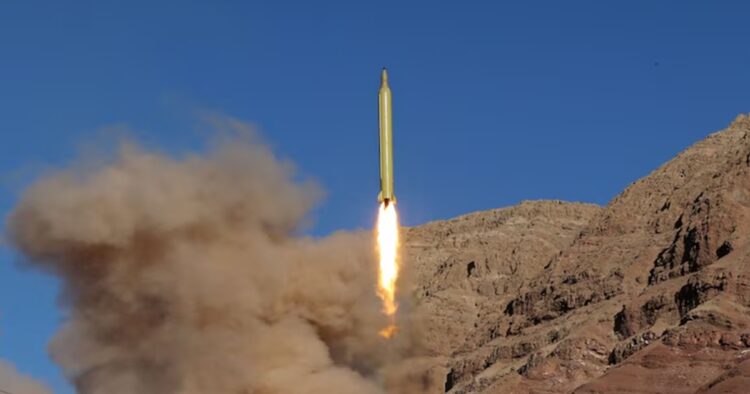North Korea announced on Tuesday that it successfully tested a new tactical ballistic missile capable of carrying a super-large warhead. The state news agency KCNA reported that the missile, named Hwasongpho-11 Da-4.5, was tested with a simulated heavy warhead to assess flight stability and accuracy. The country plans another test in July to evaluate the “explosion power” of this warhead.
The test follows South Korea’s report of two ballistic missiles launched by North Korea on Monday. The first missile, identified as a KN-23, flew approximately 600 km before landing. The second missile, however, failed soon after launch, exploding in flight over North Korean land.
KCNA did not mention the failed launch but emphasized the successful test of the Hwasongpho-11 missile series. These missiles, known as KN-23 and KN-24, are part of North Korea’s short-range ballistic missile development efforts.
North Korea’s recent missile activities are viewed by South Korean officials as potential demonstrations of military capability to prospective buyers.
The KN-23, identified as a missile type supplied by North Korea to Russia, has gained attention due to its reported use in conflicts, including the war in Ukraine.
Despite denials from North Korea and Russia regarding arms trade, their relationship has strengthened, culminating in a Comprehensive Strategic Partnership. This partnership includes a mutual defense agreement, underscoring deeper military cooperation between the two nations.
READ MORE: “North Korea Fires Two Ballistic Missiles, One Suspected To Have Fallen On Land”
The international community continues to monitor North Korea’s missile advancements closely. The country has been rapidly developing various ballistic missiles, including intercontinental ones, under the Hwasong project. These developments raise concerns about regional stability and adherence to international norms regarding ballistic missile testing.
Amid these developments, North Korean leader Kim Jong Un recently concluded policy meetings focusing on economic progress in the country’s industrial and agricultural sectors. The meetings highlighted goals for the remainder of the year, with minimal emphasis on military and foreign policy discussions, as reported by KCNA.
The situation remains fluid as countries assess the implications of North Korea’s missile tests and its evolving diplomatic and military relationships.

















Comments